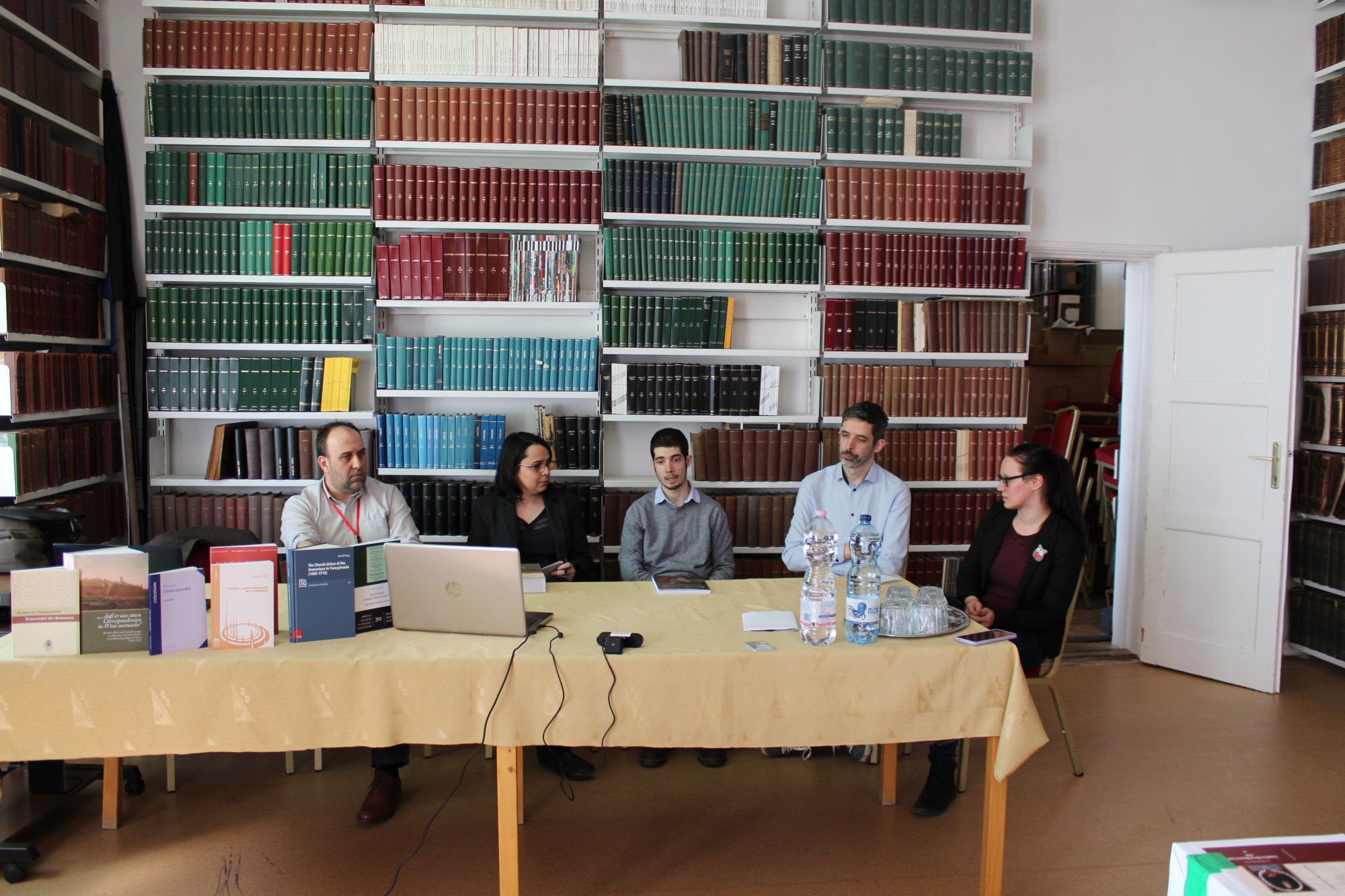01 April 2022
March 21-24, 2022, the Centre for Reformation Studies (CRS) in Budapest organized an online summer course for doctoral students reflecting on the phenomenon of religious persecution during the Long Reformation (1500−1800).

Photo left to right: Zsombor Tóth, Julianna Orsós, János Rédey-Keresztény, Béla Mihalik, and Tünde Móré
With the focus on the events and the sources of various early modern persecution experiences, the course proposed a comparative approach and an interdisciplinary treatment to unveil the historical, theological and cultural background of religious conflicts that shaped the history of European Reformations. One of the major preoccupation of the speakers was to introduce some of the most influential texts of early modern martyrological literature (John Foxe, Ludwig Rabe, Jean Crispin, Simon Goulart) and their Hungarian reception, in order to reconstruct the history and contemporary Hungarian perception of sixteenth-century religious persecution suffered by Protestants.
In addition, seminars insisting on the close reading and thorough examination of Hungarian and Latin texts, both manuscripts and prints, revealed the connections between ego-documents, personal accounts, and early modern master narratives of ecclesiastical history describing Reformation as a permanent fight between the True Church (Vera Ecclesia) and False Church (Falsa Ecclesia).
Having established the literary canons of early modern martyrologies and their Hungarian reception, the course’s second aim was to explore the confessional richness and variety of martyrologic literature within the different cohabitating denomination. Thus, from cases contemplating on the evolution of Catholic hagiography to the Antitrinitarian treatment of persecution and exile experiences recorded in manuscript variants, a large array of interesting issues embedded in the early modern multiconfessional culture had been revisited during the discussions with the online audience.
The concluding day consisted of a workshop where the attending students had the possibility to introduce their projects, which were discussed in detail in order to provide a consistent feed-back to them. Finally, the course came to an end with a roundtable discussion introducing the latest publications of the research group.
The summer course was hosted by the Centre for Reformation Studies (RCH, Institute for Literary Studies) and it was part of the research agenda of the Long Reformation in Eastern Europe (1500-1800) Research Group.